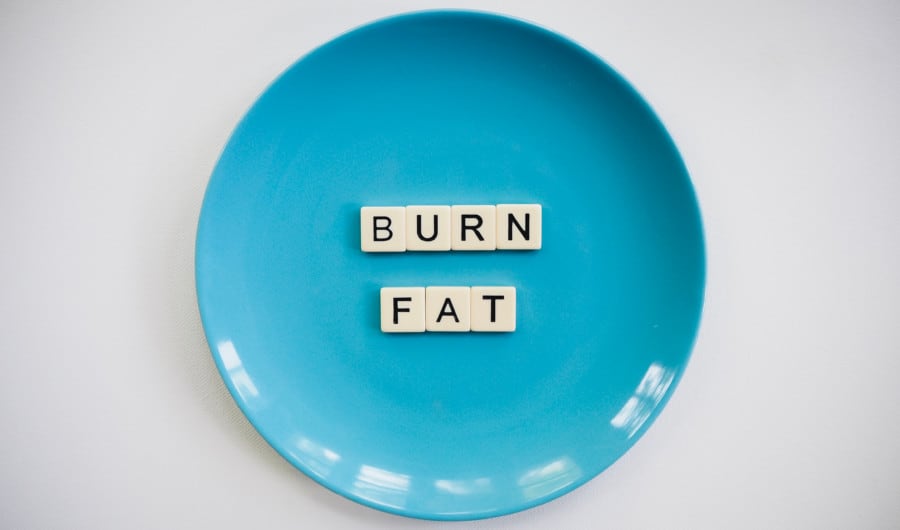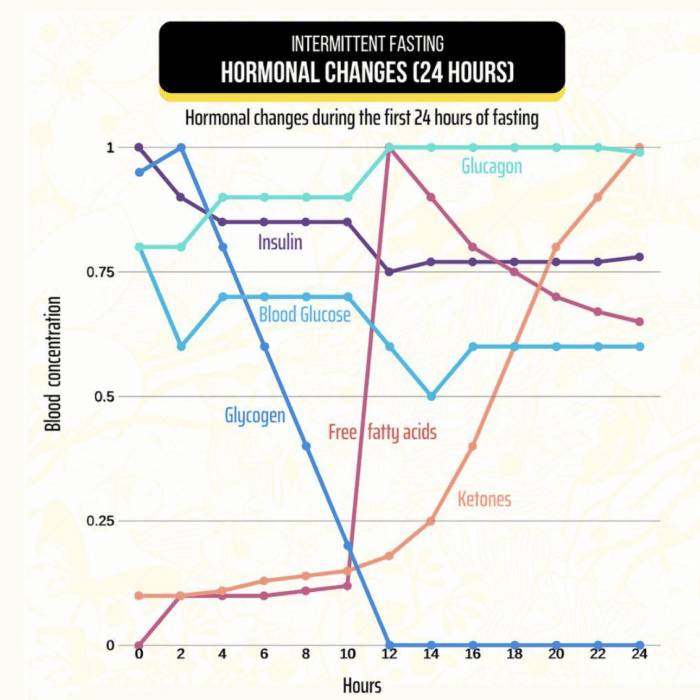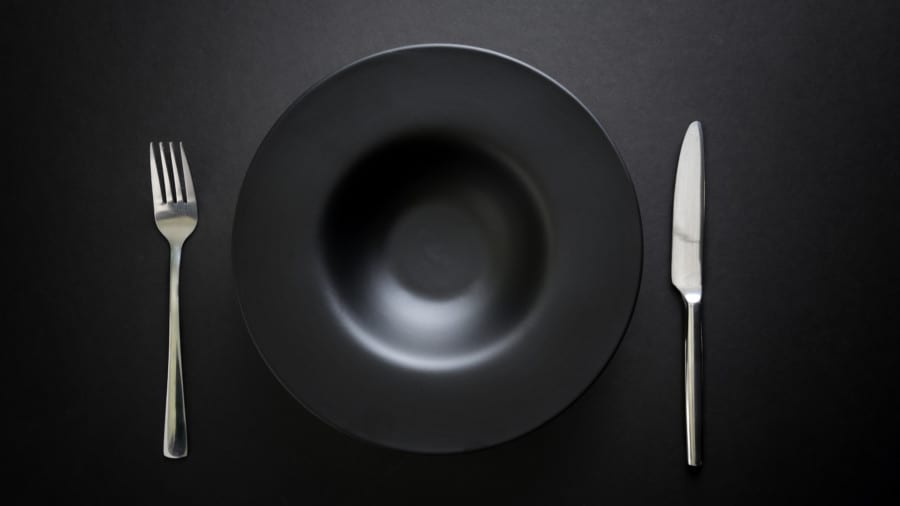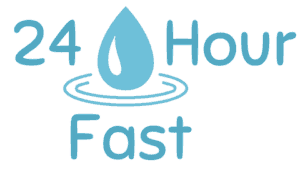Intermittent fasting has been increasingly popular in the past few years and for good reasons. It does bring interesting benefits. Among them, weight loss and fat loss. Longer fasting regimens especially, such as a 24-hour fast, are usually mentioned as very powerful for fat loss purposes. So does a 24-hour fast burn fat?

The issue with eating all the time
We can only expect fat loss when we go through the process of burning fat. Our body is designed to burn fat naturally. But because of our lifestyle and the constant abundance of food, we tend to eat all the time. Well ok, maybe not all the time, but during an extended period of the day. How long do you typically go without any food on any given day?
Most of the time, we eat first thing in the morning and late at night before going to bed. That can cover up to 16 hours. In that case, we only fast during our sleep. How long is that though? Sleep time is getting shortened more and more nowadays. For most people, that is the first thing to reduce when things get busy (hint: it shouldn’t).
Because of this constant access to food that we give to our body, it is slowly becoming solely reliant on glucose to use as energy. And in the meantime, we are losing our abilities to use fat as fuel.

When do we burn fat?
Our body can get its energy from fat, carbohydrates, and proteins. Which one our body uses depends on the type of activity we do and our adaptation level.
Our body’s preferred way of fuel is glycogen. It comes from the storage of excess glucose present in our bloodstream after a meal. Glycogen will be converted back into glucose and used first for energy when needed. But some of this excess glucose is also stored as fat into our cells after a meal.
Only after our glycogen reserves are exhausted, then we will tap into this stored fat to use it as fuel. That’s when we start burning fat. The stored fat will be broken down into fatty acids and glycerol through lipolysis. The issue is that if we eat pretty much all day long, we will rarely let our bodies go into this fat-burning mode.
All of these energy storing and burning processes are controlled by hormones. And there are a lot more factors than can impact them. Like exercising, workout intensity, sleep quantity and quality, diet quality, … But let’s focus on the impact of fasting on the fat-burning process here.

How intermittent fasting impact fat loss?
It takes between 8 and 12 hours for our body to exhaust our glycogen reserves. Only after that amount of time will we start to use fat as fuel and hence start burning fat.
So by fasting during around 12 hours or more, which means not having any food or any significant amount of calories during that time, we will put our body in that ‘fasting’ state. Which means we are not relying on glucose or stored glycogen anymore to produce energy.
Practicing intermittent fasting puts your body in that situation of having to burn fat for energy on a consistent basis. That is a biological process that it is extremely important not to lose. Even more importantly when you are trying to lose weight and fat as a goal.
Is 24-hour fast enough to burn fat?
As we just saw, the fat-burning process starts around 8 to 12 hours of fasting. So 24-hour fast is an interesting and powerful strategy that can be used for fat loss. It is worth noting that it’s not the only method though, but it does bring some interesting benefits that shorter fasts may not.
Let’s look more precisely at the hormonal changes that occur while fasting.

We can see a drop of glycogen up to 12 hours while free fatty acids resulting from the fat-burning process show a huge increase after 10 hours. At the same time, glucagon increases and stays elevated, as it is a hormone involved in promoting lipolysis and elevating the concentration of glucose in the bloodstream.
The level of ketones also starts to increase more rapidly after 10 to 12 hours and means the body is transitioning into ketosis. By 18 hours, your body switches to a full fat-burning mode and generate significant ketones, above your baseline values.
So is a 24-hour fast long enough to burn fat? Yes, it definitely is as it allows your body to go deep into fat-burning mode. However, it needs to be done consistently. It’s not a miraculous method. There are several possible ways to practice a 24-hour fast. Most popular being alternate-day fasting or doing it once or twice a week every week.
The importance of calorie restriction
Another important point to note is while a 24-hour fast allows you to enter ketosis and burn fat, your diet has also a lot of importance. You shouldn’t use it as an excuse to eat junk food or overeat the rest of the time. At the end of the day, if you store more fat during your feeding days than what your body can burn while you fast, the net will just be fat gain and weight gain.
One of the core principles of weight loss and fat loss while intermittent fasting is mainly mediated by an overall reduction in calorie intake. And while it’s not required to necessarily count calories, eating during fewer days will naturally lead to fewer calories ingested. Assuming a healthy and balanced diet is observed during the feeding days – we cannot stress that point enough.

24-hour fast and other fasting regimens
24-hour fasting is not the only method that can potentially lead to fat loss. As we have previously seen, the fat-burning process and the transition into ketosis starts between 10 to 12 hours. Shorter fasts, one of the most popular being the 16/8 method (fasting for 16 hours and eating in an 8-hour window), also show weight loss benefits.
Daily calorie restriction is also a common method to lose weight. And studies showed that there is no significant difference in weight loss between intermittent fasting and calorie restriction. Meaning that no method was proven significantly more efficient than the other one.
When choosing the method you want to experiment, it’s important to understand your overall goals. Is fat loss your only goal? Or do you want to experience some of the other benefits that longer fasts can bring?
How it will fit into your lifestyle is also important to take into consideration. Any intermittent fasting method will need to be done consistently and be sustainable in the long term.

For this reason, some people prefer shorter fasts, to practice every single day. While other people are adept at the 24-hour fast as it can be incorporated into your life very easily. Basically eating one meal on your fasting days (24 hours after the previous one) and eating normally on the feeding days. Alternating this every other day or choosing one or two specific days during the week to fast.
In the end, you need to think about what will most likely be feasible and sustainable in your life, without causing too much friction. Experimenting is the keyword here. Try with your most favored method first based on those considered factors. And keep at it on a long period enough to see if it works for you, at least for 6 to 8 weeks.
Other benefits of 24-hour fasting
A 24-hour fast is not only beneficial for fat loss and weight loss but shows a much broader range of benefits, among which we can find the following ones:
- Reduced inflammation
- Autophagy
- Increased insulin sensitivity
- Improve anabolism
- Reduced blood pressure
- Improved cognitive functions
Understanding the whole array of benefits that intermittent fasting may procure as well as the specificities of each method are important when determining what could be beneficial for you.

Conclusion
Intermittent fasting and 24-hour fasting, in particular, can be a powerful tool to lose fat. It mainly comes from the overall calorie reduction that intermittent fasting leads to as well as allowing your body to go in a fat-burning mode.
It can be highly beneficial for some people. However, it is not for everyone, which is why experimenting is key.
Please note that the following population should not attempt intermittent fasting without consulting their doctor first: people with any medical condition, with diabetes, low blood pressure, taking certain medications or women who are pregnant or breastfeeding. And if you have any doubt, it is always recommended to talk to your doctor first.
The information we provide at 24hourfast.com is not intended to replace a consultation with a qualified medical professional. By interacting with this site, you agree to our disclaimer. Read more.
